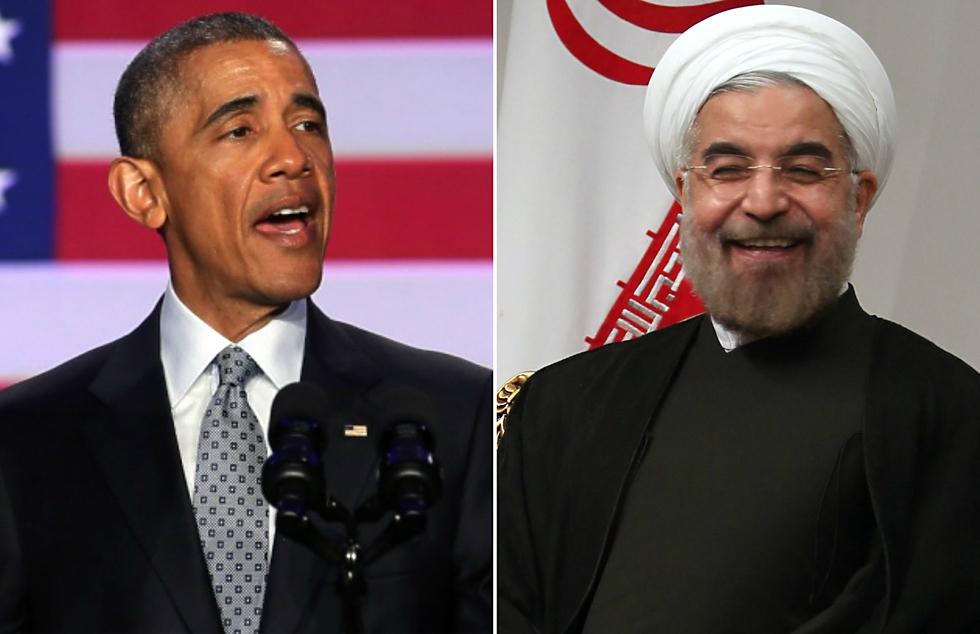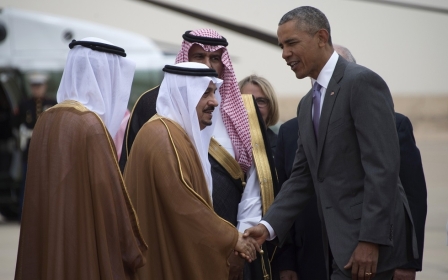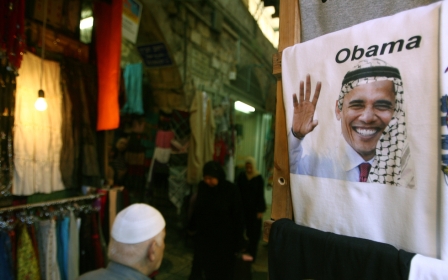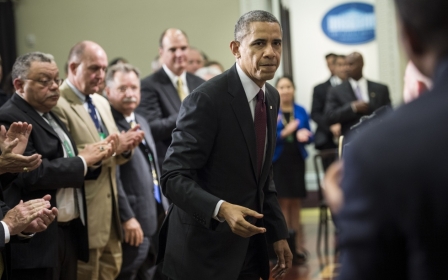ANALYSIS: Who would gain from Obama-Rouhani meeting?

It was a claim that had the potential to change the political landscape of the Middle East: Barack Obama reportedly sent a letter to his Iranian counterpart Hassan Rouhani asking for a face-to-face meeting to help solve regional crises before his term as US president ends.
According to an English translation of the original Iranian story, Obama stated that Iran had a "limited-time opportunity to co-operate with the US in order to resolve the problems in Syria, Iraq and Yemen". The US president promised that if Iran's leaders agreed to meet, he "would be willing to participate in any conference to this end".
Obama reportedly sent letters to both Rouhani and Iran's Supreme Leader Ali Khamenei. According to the translation by media monitor Memri, Khameni agreed to Obama's request after Rouhani argued that such a move could increase Iran's regional influence.
An American pivot towards Iran on the wars being fought in Yemen, Syria and Iraq would raise fundamental questions about US alliances with Israel and Saudi Arabia. So could such a request have been real?
Middle East Eye could not independently confirm the reports, nor the Iranian response. The US State Department did not respond to a request for comment.
But if genuine, any meetings agreed to would be the first between leaders of the two countries since the 1979 Islamic revolution.
The letters would also suggest an attempt by Obama to cement better US-Iranian relations, secured during last year's deal to curtail Iran's nuclear ambitions, and leave behind conditions for the next US president to continue his work.
Ellie Geranmayeh, an Iran expert at the European Council on Foreign Relations, said that it was not out of the question that Obama had corresponded with the Iranian leadership.
"Obama has written letters before to Khameni, focused on the nuclear negotiations. They were openly recognised towards the end of the negotiations by Iran," she said.
However, any talks of a face-to-face meeting with Rouhani was a different proposition.
“Straight after the nuclear deal was signed, there was a clear message from the supreme leader that all future negotiations would be focused on the implementation of the nuclear deal and there was no mandate to negotiate with the US on regional issues," she said. “Khameni through his public and private meetings had clearly shut that door."
"Unless there is a very convincing offer, I am not sure the Iran have the appetite to take it forward. The conditions are not right for direct presidential meetings - they would face a lot of backlash, both in Iran and the US."
Geranmayeh said she believes that, if the letters were genuine, Obama would be keen to give his successor a platform on which to build.
“There is no scope for normalising relations in last months of Obama’s term. His priority is to make sure the nuclear deal is cemented," she said.
“He is trying to create certain conditions that will at least give the next president a viable opportunity to take it forward in terms of a diplomatic outreach for Iran on resolving some of the conflicts in the region.”
Geranmayeh said such a high-level, public meeting, would antagonise Washington's traditional allies Saudi Arabia and Israel, but Obama's time had essentially passed anyway.
“The leaderships of the Gulf states are waiting for the new White House administration to be decided. If anything happens under Obama, they would not public retaliate but also they may in some ways dismiss it – they don’t think Obama holds much political capital in the last months of his presidency," she said.
“They would be much more focused on getting the next US administration on board with Saudi foreign policy. I imagine they will place their bets on Hillary Clinton and are working on influencing her strategy on containment of Iran and working more closely with Saudi Arabia. I’m sure everyone who wants to be influencing the next administration, and is betting on Clinton, is doing the lobbying necessary.
“Clinton has also been quite vocal about what has been going on internally in Saudi Arabia. She has said there needs to be conversations with our allies in the Gulf, particularly when it comes to Daesh [the Islamic State group].
“The Saudis will be more focused on working with Clinton on a containment policy, which Clinton has said she would be on board with. She has made it very clear that there needs to be push back on Iran in the region and, if sanctions are necessary, they will be supported.
“The Saudis are not betting Clinton will do a complete U-turn in terms of the US-Saudi relationship but they are betting that she will take a much more harsher stance on Iran."
She said Israel, too, was probably looking beyond Obama.
Relations between the US and its main Arab ally, Saudi Arabia, have been tested in recent years as Riyadh seeks to counter Iran's rising influence. It opposed the deal curtailing Iran's nuclear programme in return for an easing of sanctions.
Saudi Arabia has become frustrated at the apparent inabilty of the US to rein in the resurgence of Iran in Syria and Iraq, and is directly fighting the Iranian-linked Houthi movement in Yemen.
Riyadh has threatened to sell hundreds of billions of dollars of American assets should the US Senate declasify 28 pages of a report on the 9/11 attacks, which apparently implicate members of the Saudi royal family.
Obama's trip to Riyadh earlier this month began with an apparent snub from King Salman, who sent the city's governor to meet Obama, and instead greeted Gulf leaders at another airport.
Warming ties
The correspondence between Obama and Iranian leaders was first reported on 19 April by Saham news, an Iranian website linked to the reformist Green movement.
The report was picked up by the Middle East Research Institite (Memri), which provided a translation, and the neoconservative Washington Free Beacon.
Obama's letters, If genuine, would be the latest of several recent points of personal contact between the two presidents, mostly over the nuclear deal.
In 2013, Obama spoke to Rouhani by telephone shortly after his election as Iranian president in 2013 - the highest-level contact in three decades since the US cut diplomatic relations with Iran a year after the 1979 revolution.
However, that telephone call came soon after Iran scuppered a face-to-face meeting at the UN General Assembly in New York.
Last March, Rouhani wrote to Obama and the leaders of five other world powers as they negotiated with Iran over its nuclear programme.
The content of the letters remain unknown.
Some analysts in Iran were sceptical about the likely outcome of the latest apparent drive by the US president.
Rasool Hosseini, a political science professor at Tehran's Islamic Azad University, told MEE that Obama had been forced to focus on a new policy in the Middle East that involves Iran.
“The Obama administration is dealing with the Saudi issue in a more realistic approach. The White House believes Saudi Arabia shouldn’t be the only partner of the US in solving the regional issues.
"Saudi Arabia's actions do not decrease terrorism in the region. However, we can see Saudi crusading to exclude Iran from any presence in regional talks.”
However, he believed a presidential meeting was a distant possibility.
"Iran has followed a realistic policy in the world, however we still can the see the shadow of ideology on its foreign policy," he said. "Plus, the taboo of negotiation with the US hasn’t been broken completely.”
Mahdi Motahania, a political analyst added: “I think Obama’s request for a meeting with Iran’s leaders will not be accepted, but nothing is impossible - it could happen in the future.”
New MEE newsletter: Jerusalem Dispatch
Sign up to get the latest insights and analysis on Israel-Palestine, alongside Turkey Unpacked and other MEE newsletters
Middle East Eye delivers independent and unrivalled coverage and analysis of the Middle East, North Africa and beyond. To learn more about republishing this content and the associated fees, please fill out this form. More about MEE can be found here.




